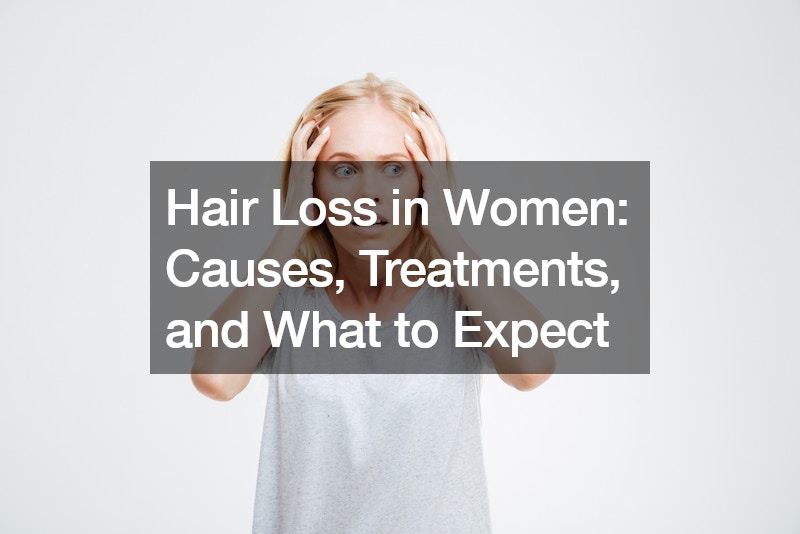Hair loss is a common concern for many women, affecting over half by the age of 70. While thick, luxurious hair is often desired, hair thinning can be caused by a variety of factors, including hormonal changes, genetics, and even stress.
One of the most common culprits behind hair loss in women is female pattern hair loss. This condition is influenced by both genetics and hormones. The good news is that hair loss treatment options are available.
For many women with female pattern hair loss, over-the-counter medications like minoxidil can be effective. However, it’s important to be patient, as hair loss treatments typically take time to show results – up to six months to a year.
Additionally, these medications aren’t a one-size-fits-all solution and won’t work for everyone.
There are also prescription medications available that target hormones in the scalp. However, no hair loss treatment is perfect. It’s important to consult with a doctor to determine the underlying cause of hair loss and discuss the most appropriate treatment options.
While female pattern hair loss is prevalent, other factors can contribute to hair thinning. Pregnancy, menopause, and certain medical conditions can all lead to temporary or permanent hair loss. In these cases, addressing the underlying cause is often the most effective approach. For instance, if a vitamin deficiency is contributing to hair loss, addressing the deficiency can help promote hair growth.
Stress can also be a factor in hair loss. While managing stress can improve overall health and well-being, it may not always directly reverse hair loss. However, reducing stress levels can promote a healthy scalp environment, which can indirectly benefit hair growth.
Hair loss in women can be a source of frustration, but it’s important to remember that you’re not alone. By understanding the potential causes and available treatments, you can work with your doctor to develop a personalized plan to address hair loss and achieve your hair goals.
.


